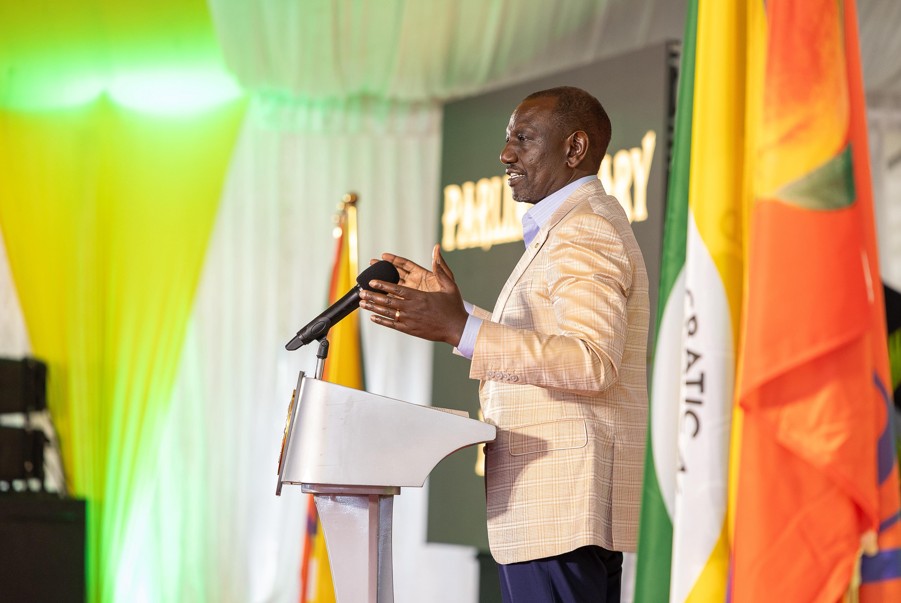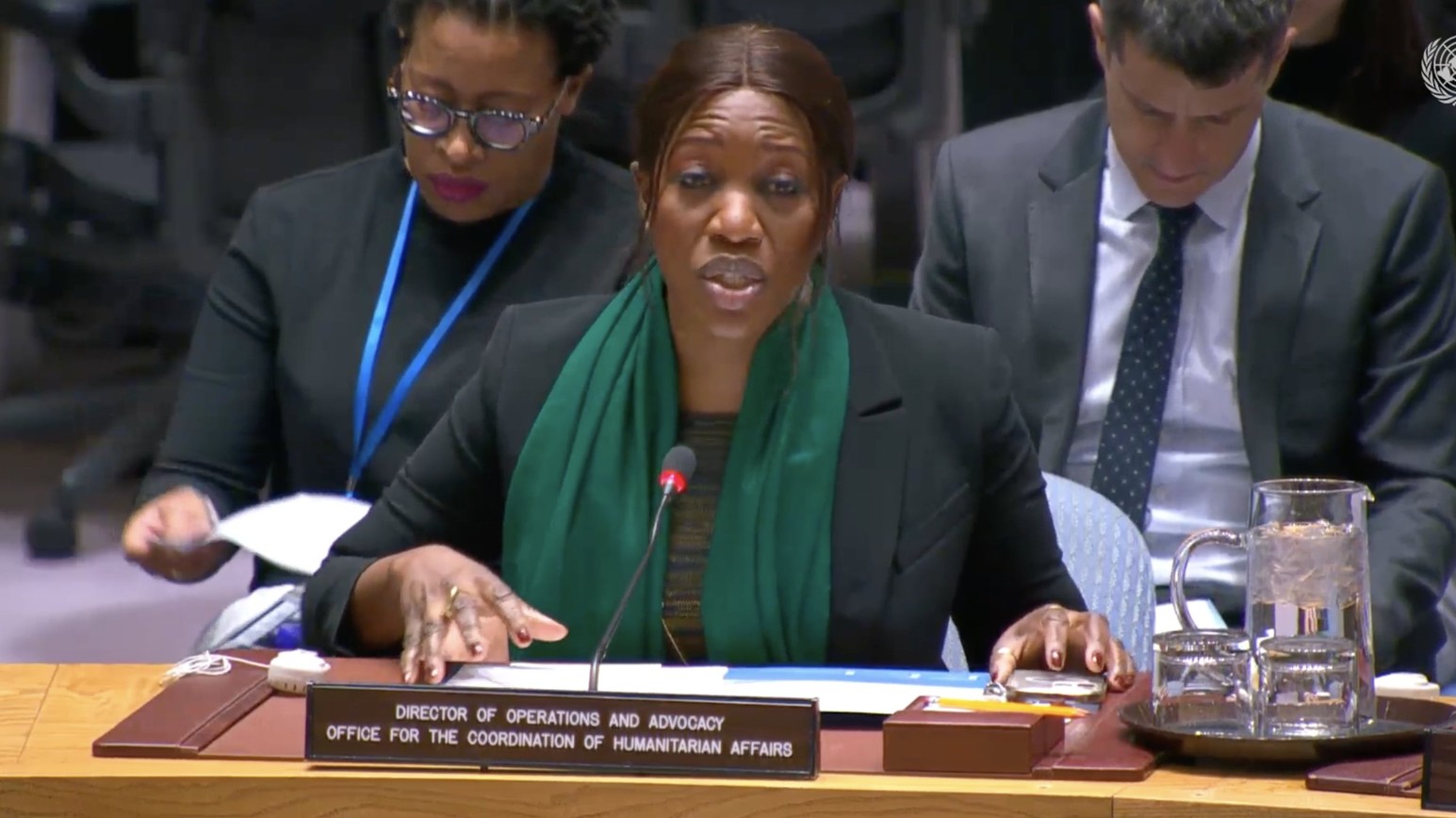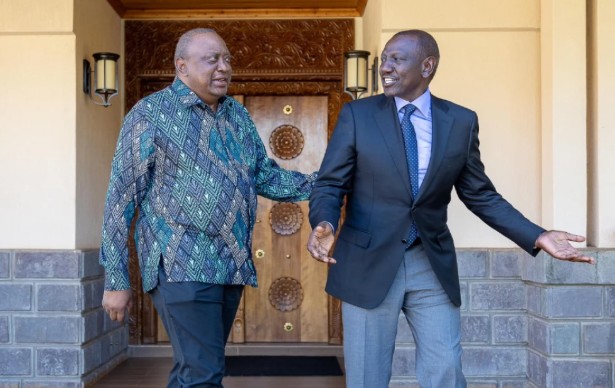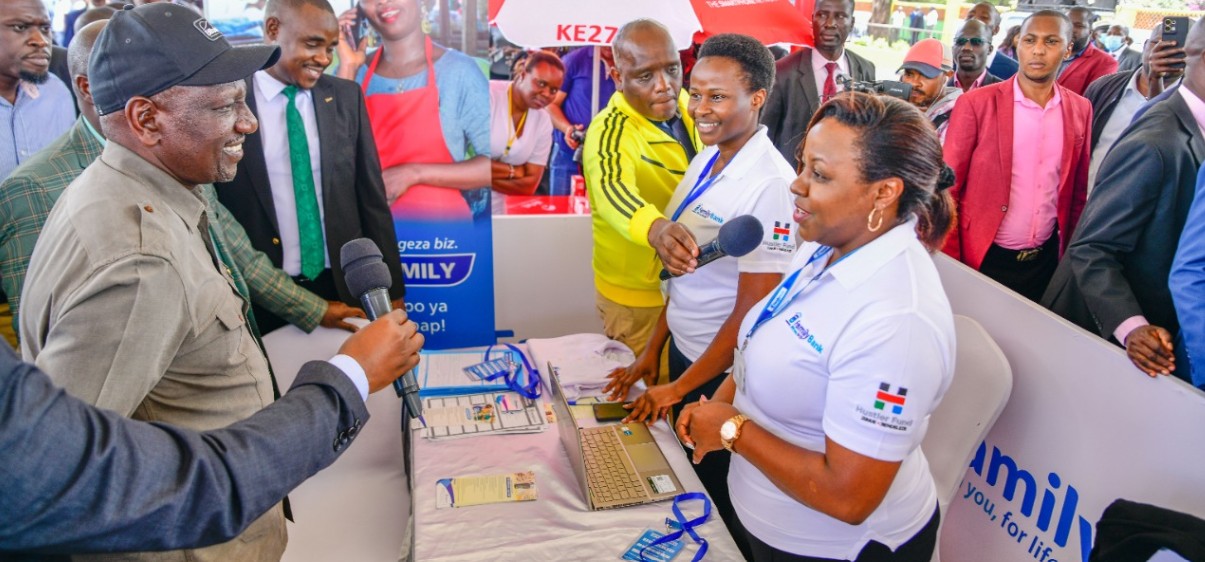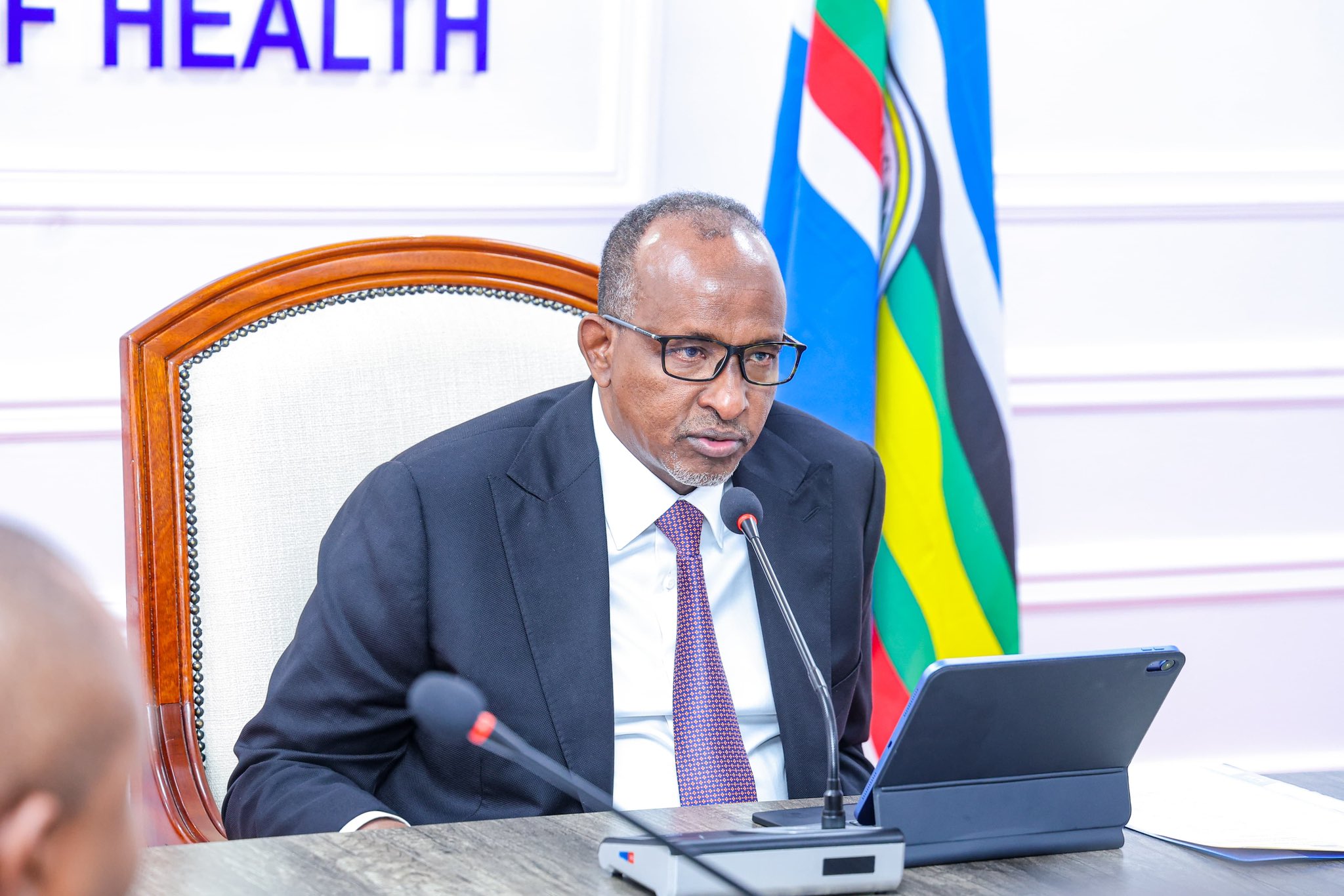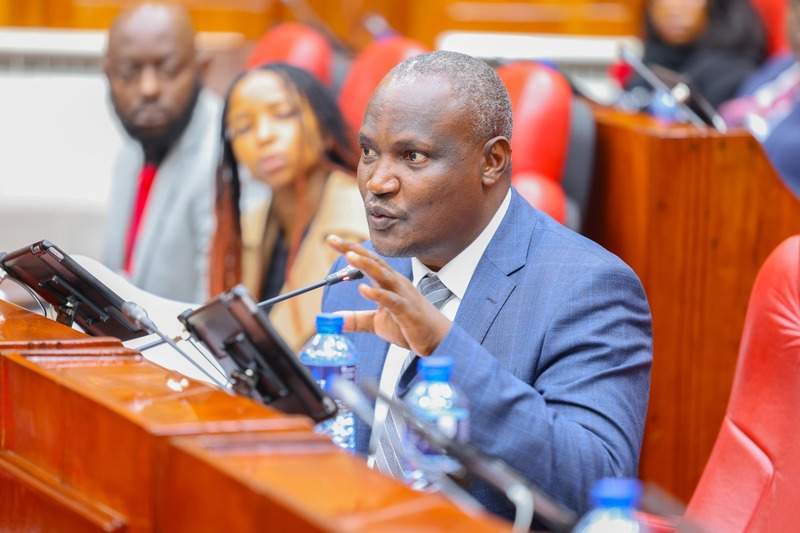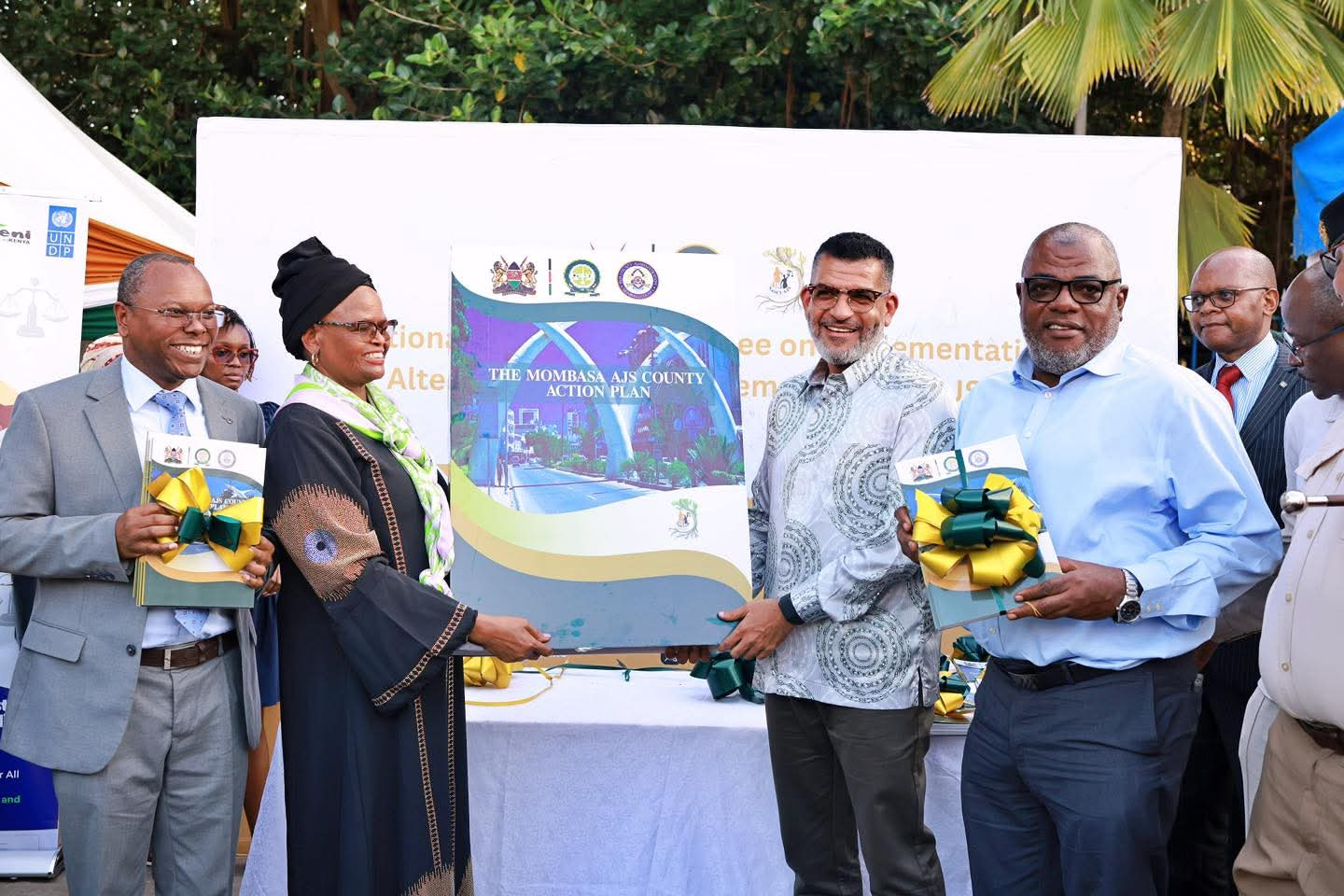Caught between superpowers: US Senators question Ruto’s loyalty after China ‘new world order’ remarks
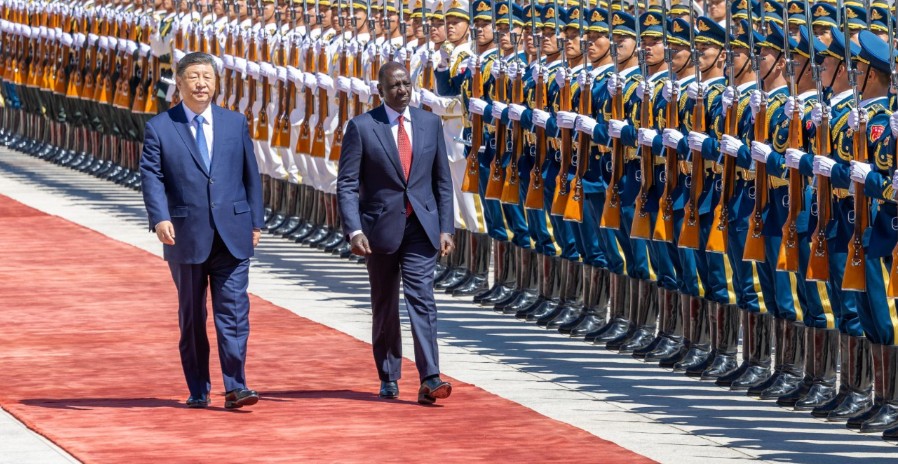
“That’s not just alignment with China—it’s allegiance. Relying on leaders who so openly embrace Beijing is a mistake... It’s time to reassess our relationship with Kenya and others who are forging closer ties with China. This is not merely a matter of trade; it’s also about the ‘new world order’.”
President William Ruto’s pledge to forge deeper ties with China in the formation of a ‘new world order’ has come back to haunt him, with US senators now questioning his allegiance as a designated American non-NATO ally.
While delivering a keynote address at Peking University in Beijing, President Ruto highlighted the need for a new global order that is fair, inclusive, and sustainable, referring to the current system as “broken, dysfunctional, and no longer fit for purpose”.
More To Read
- Ruto appoints Komora, Siparo to National Police Service Commission
- Challenging the status quo: Githunguri MP Gathoni Wamuchomba tells it all
- Ruto, Raila and leaders unite in praise for Harambee Stars despite 'heartbreaking' loss
- Court suspends Ruto’s anti-corruption taskforce pending hearing of case
- House Committee rejects Ruto-backed presidential transition Bill
- Ruto, US Secretary Rubio discuss Haiti security mission, trade as Kenya pushes UN support
He further stated that Kenya and China would act as co-architects of this paradigm shift.
“Kenya and China are not merely trade partners; we are co-architects of a new world order—one that is fair, inclusive, and sustainable... This visit, the first African visit to China this year, mirrors my 2024 visit to the United States, the first African state visit there in 15 years. Perhaps symbolically, Kenya can serve as a bridge between East and West, North and South, in an era of deepening geopolitical tensions,” he said.
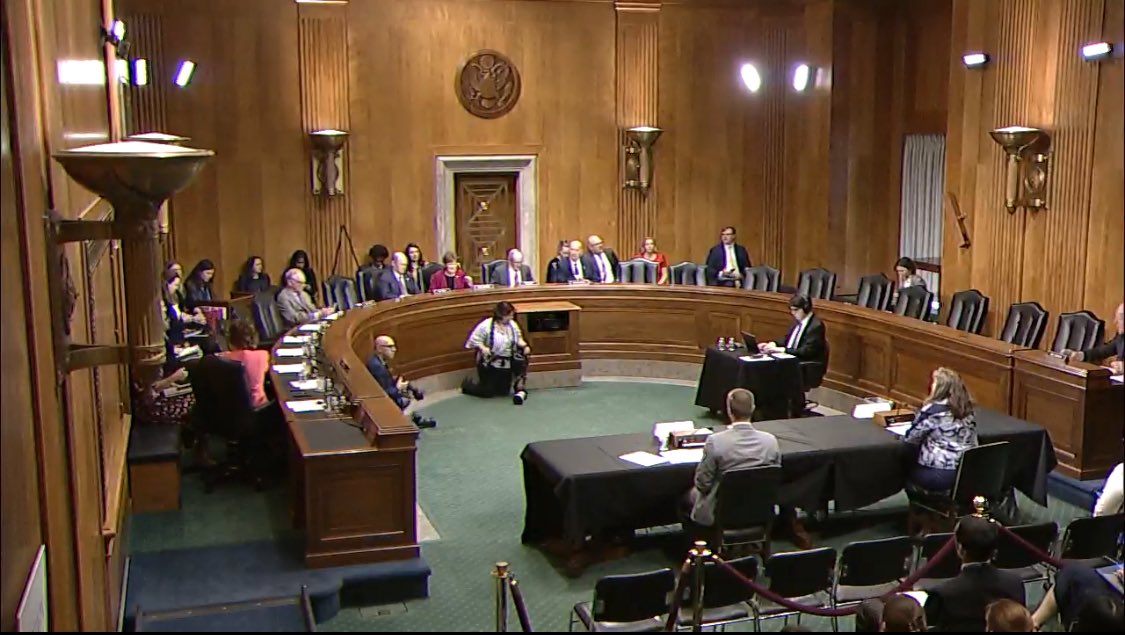 Senate committee convened on Tuesday afternoon to deliberate on the United States’ relations with East Africa and the Horn, in a session titled “East Africa and the Horn: At a Turning Point or Breaking Point.” (X/Mohamed Muse Hassan)
Senate committee convened on Tuesday afternoon to deliberate on the United States’ relations with East Africa and the Horn, in a session titled “East Africa and the Horn: At a Turning Point or Breaking Point.” (X/Mohamed Muse Hassan)
The US Senate Foreign Relations Committee convened on Tuesday afternoon to deliberate on the United States’ relations with East Africa and the Horn, in a session titled “East Africa and the Horn: At a Turning Point or Breaking Point.”
In his brief but stern opening remarks, the committee chair, Senator James Risch, described President Ruto’s statements as shocking, noting that they came barely a year after Kenya was designated a US non-NATO ally.
“That’s not just alignment with China—it’s allegiance. Relying on leaders who so openly embrace Beijing is a mistake... It’s time to reassess our relationship with Kenya and others who are forging closer ties with China. This is not merely a matter of trade; it’s also about the ‘new world order’,” he said.
He further argued that US foreign policy in Africa must pivot away from being centred on individual leaders, and instead focus on strengthening institutions, bolstering private sector links, and empowering the region’s young and dynamic populations.
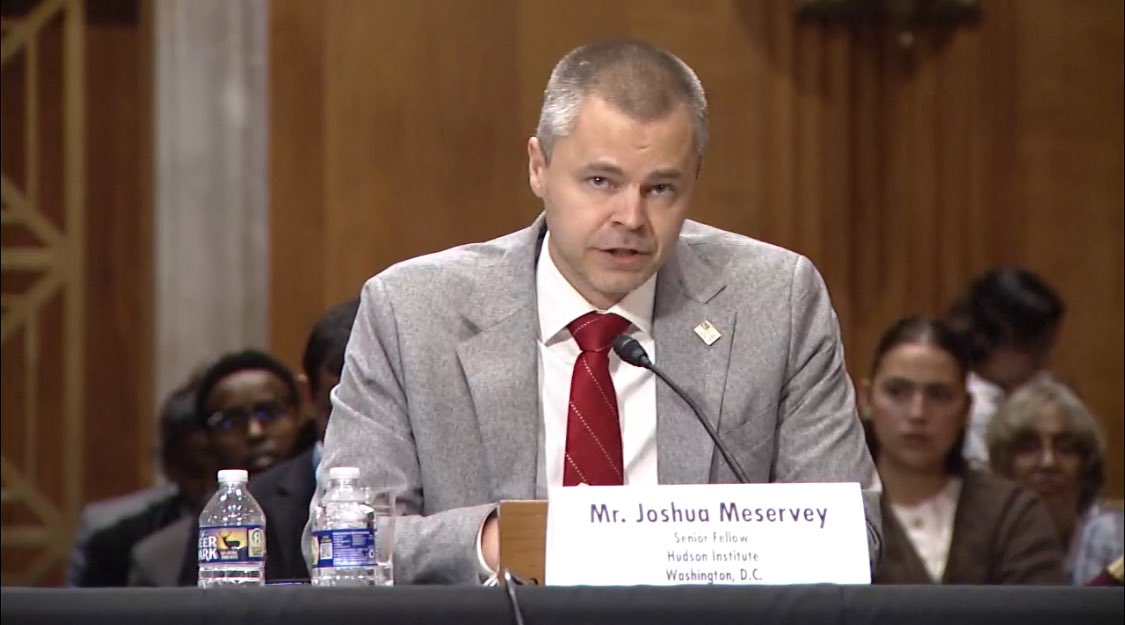 Joshua Meservey, a Senior Fellow at the Hudson Institute, who has previously worked in the region, including Nairobi. (X/Mohamed Muse Hassan)
Joshua Meservey, a Senior Fellow at the Hudson Institute, who has previously worked in the region, including Nairobi. (X/Mohamed Muse Hassan)
The senators concurred with the proposal to limit reliance on political figures in favour of building civic institutions that can outlast elected individuals.
“Institutions are generally stabilising forces and will often outlast even the longest-serving rulers. Washington should maintain working relations with regional leaders, but over-reliance renders the US vulnerable. Kenya, for example, is an important country with opportunities to collaborate with President Ruto. Yet, he was recently in Beijing declaring his commitment to reshaping the global order—a core goal of the Chinese government in its efforts to supplant the US globally,” said Joshua Meservey, a Senior Fellow at the Hudson Institute, who has previously worked in the region, including Nairobi.
Michelle Gavin, a Ralph Bunche Senior Fellow for Africa Policy Studies, also stressed the importance of understanding domestic dynamics in African countries and urged the US to cultivate strong relationships with actors beyond the government.
“Changes in leadership need not derail US strategy—provided we understand the aspirations and concerns driving those changes,” she told the committee.
She further observed that while the US has collaborated closely with President Ruto to strengthen commercial and security ties, it had missed opportunities to align with the Kenyan public, “who have made it very clear that fighting corruption is a top priority.”
“The result of this misalignment is a less attractive investment climate for the US, and a weakened Kenyan President diligently seeking support from China and the Gulf,” she noted.
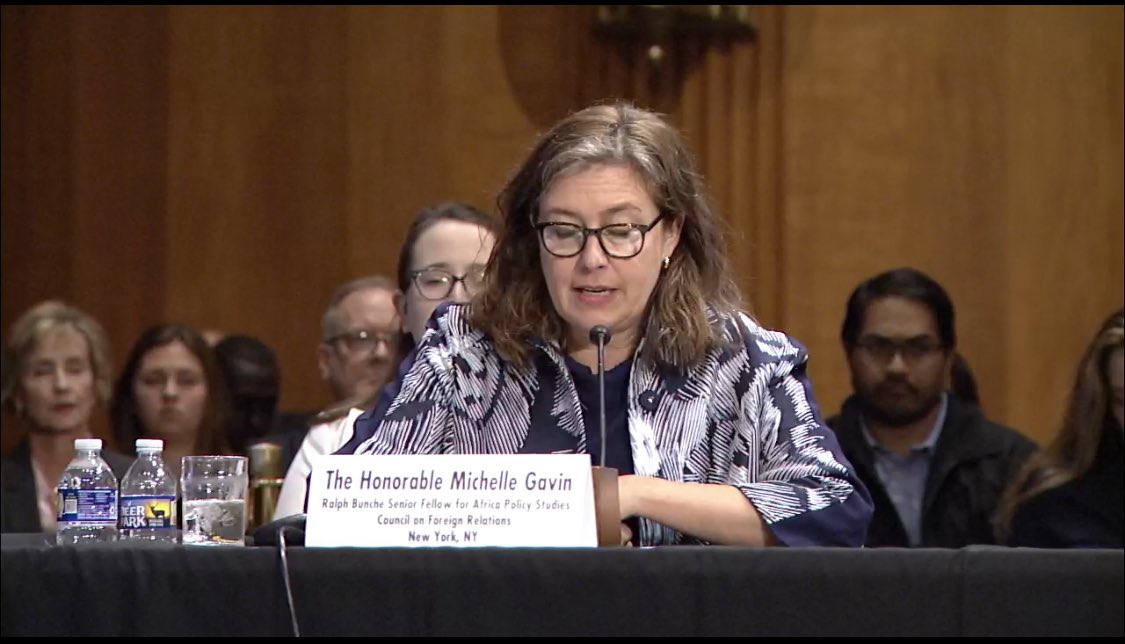 Michelle Gavin, a Ralph Bunche Senior Fellow for Africa Policy Studies. (X/Mohamed Muse Hassan)
Michelle Gavin, a Ralph Bunche Senior Fellow for Africa Policy Studies. (X/Mohamed Muse Hassan)
The US maintains substantial economic and security interests in the region, which borders key maritime trade routes and hosts a significant military presence, primarily in Djibouti. It is also actively engaged in counter-terrorism efforts in Somalia, in partnership with Kenya and others.
Coincidentally, while the Senate session was underway, a Chinese delegation led by Fuzhou Benny Tea Industries Chairman Zhang Chaobin was meeting President Ruto at State House to discuss expanding Kenyan tea exports to the Chinese market.
Meanwhile, Ruto’s ruling party, the UDA, has been deepening its ties with China’s Communist Party.
President Ruto’s perceived ‘lack of allegiance’ was further highlighted by his support for Iran’s renewed influence in the region, hosting Iranian President Ebrahim Raisi during his first visit to Nairobi in 2023.
“Despite Iran’s backing of terror plots against his country, President Ruto referred to Iran as a ‘critical strategic partner’,” Meservey told the committee.
The committee also flagged Uganda as another difficult case for the US. Despite its troops aiding efforts against Al-Shabaab, it noted that “President Museveni’s son, his heir apparent, is erratic and intemperate—and may have recently been involved in the torture of an opposition leader’s bodyguard."
Top Stories Today
